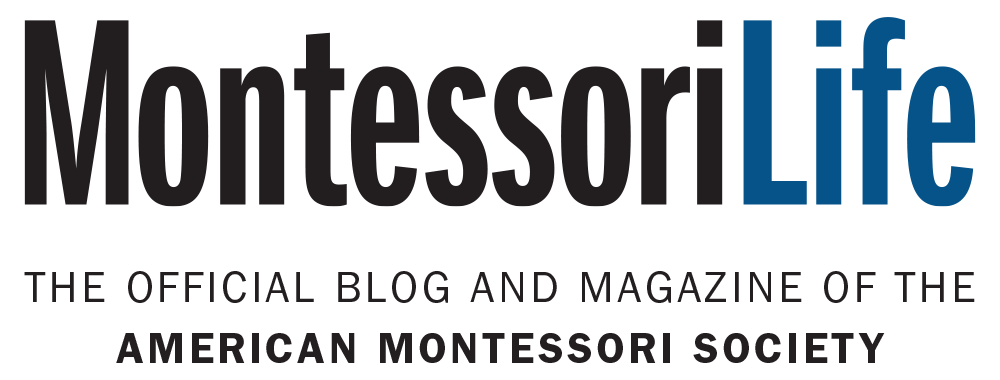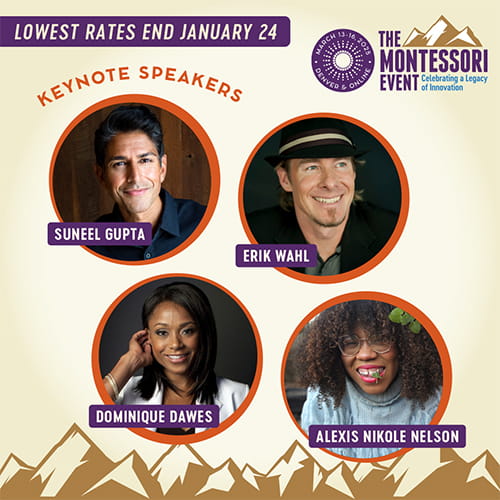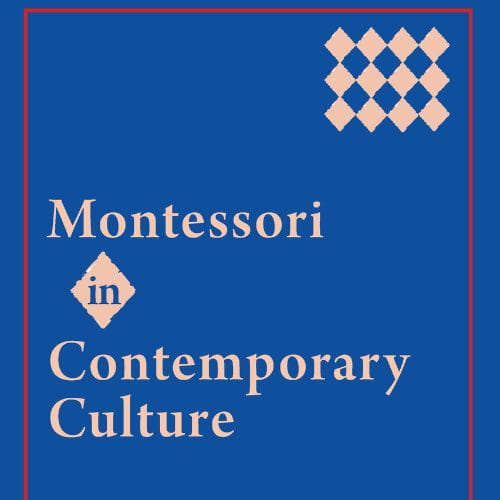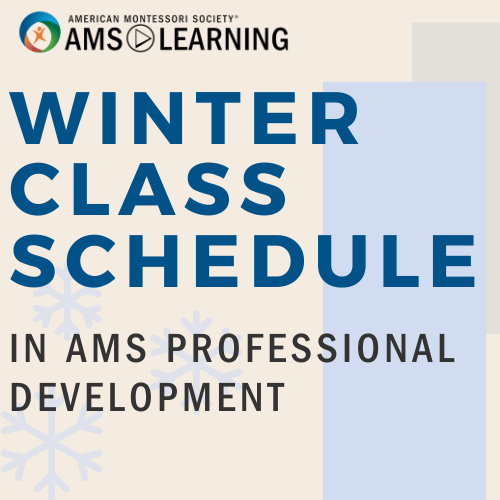Foraging Curiosity: Social Media Star "Black Forager" Alexis Nikole Nelson Takes the Stage at The Montessori Event 2025

Thousands of educators from around the world are preparing to gather in person or virtually for the The Event 2025, Celebrating a Legacy of Innovation, which marks the American Montessori Society’s 65th year. This series, presented through the month of February, will introduce readers to some of the Event’s speakers, exhibits, and other highlights. The keynote speakers for the 2025 event include Suneel Gupta, Erik Wahl, Dominique Dawes, and Alexis Nikola Nelson.
In this first part of the series, we highlight keynote speaker Alexis Nikole Nelson: forager; outdoor educator; social media personality; and recipient of the James Beard Award. Nelson’s address on Reframing Food: A Tasteful Revolution, “will guide us as educators to reframe the world of food, while asking us to consider making tastefully satiating and environmental food choices.”
Nelson, who is known on social media as “Black Forager,” grew up in Cincinnati, Ohio, where she attended The New Montessori School–a fitting foundation for someone whose curiosity and hands-on approach to the world have shaped her career. Montessori education fosters independence, exploration, and a deep respect for nature, all of which shine through in Nelson’s passion for foraging. Long before she became a viral educator, she was a Montessori child, learning by doing and engaging with her environment in a way that would eventually captivate millions.
In an interview with National Public Radio (NPR), Nelson remembers the moment she discovered foraging–a memory that echoes Montessori’s emphasis on sensory learning and discovery. While gardening, her mother pointed out a patch of grass that looked different. Encouraged to investigate, Nelson broke off some blades and instantly smelled garlic. “If you [encourage] a five-year-old [like] that, they will just start breaking plants in your yard and seeing if magical smells emanate from them,” she laughs. That instinct to explore, test, and learn through direct experience–hallmarks of both foraging and Montessori education–set her on the path to becoming the engaging, knowledge-sharing force she is today.
Nelson’s family’s history with agriculture goes back to the immigration of her mother’s family from Cape Verde in the 1600s, and an important aspect of her work is related to her African and Indigenous roots–specifically the food traditions that have been historically forbidden and forgotten. Nelson explains that when Blacks were enslaved, they traded knowledge with Indigenous peoples—knowledge that allowed them to supplement their meager meals with foraging, trapping, and fishing, all of which became an important part of Black culture in America. After emancipation, it was unlawful to hunt or forage on land one did not own or on public property. Because most newly freed slaves did not own land, Nelson points out, “that is a part of your life that you are not partaking in anymore. And it doesn't take a whole lot of generations passing for that knowledge to just fall away completely” (NPR).
Why should this topic matter to Montessorians?
For educators concerned with principles of sustainability, and who follow the philosophy of both an integrated curriculum and educating the whole child, the idea and act of foraging complements several areas of the Montessori curriculum.
- Botany – The Montessori Botany curriculum is extensive and includes material on parts of the plant, parts of the leaf, parts of the roots, the stem, the flower, and the seed. We have material on plants we eat, also categorized by these parts. The curriculum can be directly linked with foraging in a way that makes botany studies more relevant to real life—to eating, in this case. With careful preparation, teachers and parents can learn about edible plants growing in their school and community environments and introduce their children to foraging, including important rules of foraging, such as: “always leave enough for the remaining population to easily recover,”—an important, related lesson on environmental stewardship.
- Practical Life – With easy access to ready-grown and prepared foods, many of us have never learned the practical knowledge of plants gained by those who rely on the land for their sustenance. Food preparation in the Montessori classroom is an important element of Practical Life, from toddler through adolescence, and many programs have gardens from which food is harvested for snacks and lunches. One can easily imagine how food preparation could be an even more encompassing experience by foraging and using wild foods. Nutrition lessons can also be included in food gathering and preparation activities.
- History, Geography, and Ecology – Exploring food traditions (which have historically included foraging) and their relationship to culture goes hand-in-hand with history and geography lessons such as the Fundamental Needs of Humans—specifically, how humans have met their need for food throughout history and in different regions of the world. Focusing this study on local Indigenous history and culture as well as native edible plant populations (ecology) helps to foster a sense of place, immers[ing] students in local heritage, cultures, landscapes … [and] using these as a foundation for the study of … subjects across the curriculum.
Through song and comedy, Alexis Nikola Nelson inspires others to learn about and partake of the edible world around them, from seaweed to acorns. Join us for her entertaining and informative presentation on foraging—one in a diverse lineup of inspiring talks, workshops, exhibits, school tours, in-focus sessions, and AMS Cares daily activities. Hope to see you there!
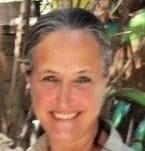
Cynthia Brunold Conesa |
Interested in writing a guest post for our blog?
Let us knowThe opinions expressed in Montessori Life are those of the authors and do not necessarily represent the position of AMS.

